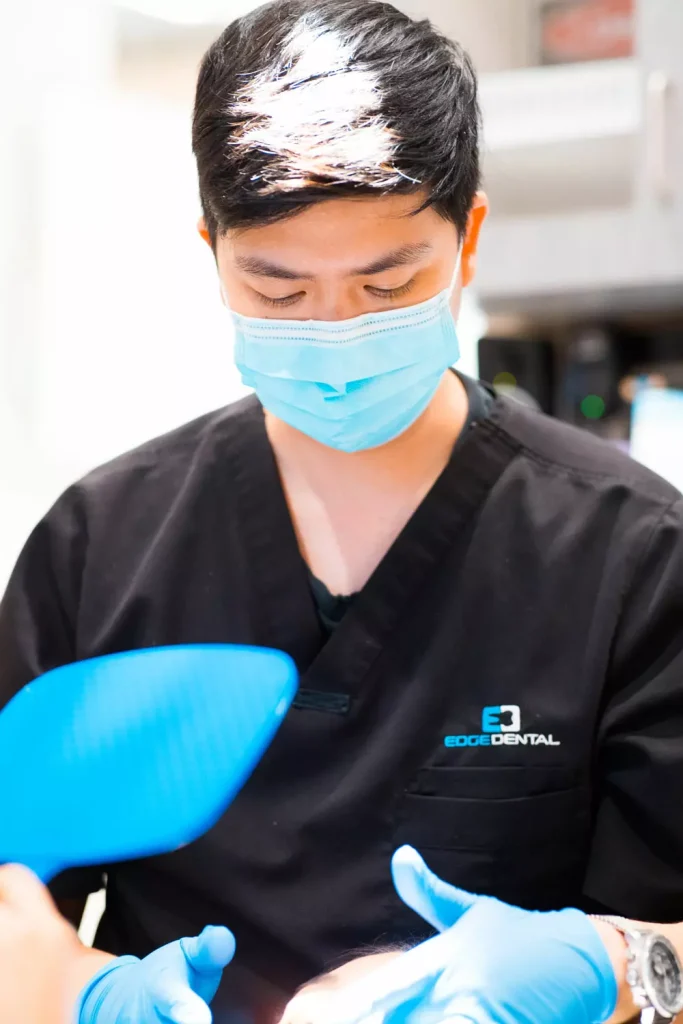When faced with sudden dental pain or swelling, many people wonder: Do emergency dentists treat abscessed teeth? The answer is yes. Emergency dentistry plays a crucial role in addressing abscesses—painful infections that, if left untreated, can lead to serious complications. In this article, we’ll explore how emergency dentists handle abscessed teeth, why immediate treatment is important, and how other conditions like bruxism may influence your oral health. Whether you’re experiencing a dental crisis or searching for bruxism treatment, understanding your options through emergency dental care can help you make the right decisions for your health.
What Is an Abscessed Tooth?
A dental abscess is a pocket of pus that forms due to a bacterial infection. It can occur in different parts of the tooth, including:
- Periapical abscess – at the tip of the tooth’s root
- Periodontal abscess – in the gums next to the root
- Gingival abscess – in the gum tissue without affecting the tooth or bone
Common symptoms include throbbing toothache, sensitivity to hot or cold, fever, facial swelling, swollen lymph nodes, and a bad taste in the mouth. These infections require immediate attention, making emergency dentistry essential in such scenarios.
How Does Emergency Dentistry Help with Abscessed Teeth?
Emergency dentistry focuses on providing urgent care for sudden or severe dental issues. When you visit an emergency dentist with an abscessed tooth, they will:
- Assess the severity – Through physical examination and X-rays, the dentist determines the extent of the infection.
- Drain the abscess – If necessary, the dentist will drain the pus to reduce pressure and relieve pain.
- Prescribe antibiotics – To control the bacterial infection, antibiotics are often prescribed.
- Perform root canal therapy or extraction – Depending on the tooth’s condition, a root canal may be performed to remove the infected tissue. If the tooth is beyond repair, extraction might be the best option.
- Offer pain relief – Pain management is a key part of emergency treatment. Dentists often administer local anesthesia or recommend over-the-counter painkillers.
Emergency dentists are well-equipped to handle abscesses quickly, reducing the risk of complications like sepsis, bone loss, or tooth loss.
Why You Shouldn’t Delay Treatment for an Abscess
An abscessed tooth is not something you can afford to ignore. Delaying treatment can result in:
- Spreading infection – The infection can move to the jaw, neck, or even the brain.
- Tooth loss – If untreated, the tooth may become irreparably damaged.
- Systemic illness – Severe infections can enter the bloodstream, leading to a life-threatening condition called sepsis.
That’s why emergency dentistry is vital—it gives you access to immediate care when every second counts.
Can Bruxism Contribute to Abscessed Teeth?
Many people associate bruxism—the habit of grinding or clenching teeth—with worn enamel and jaw pain. However, bruxism can also indirectly lead to abscess formation.
Here’s how:
- Cracked Teeth – Constant grinding can create microfractures or cracks in your teeth, which allow bacteria to enter the pulp and cause infection.
- Gum Recession – Excessive pressure from bruxism can cause the gums to recede, exposing the roots and creating pathways for bacteria.
- Compromised Restorations – Bruxism can damage crowns and fillings, allowing decay to set in and possibly lead to infection.
If you’re undergoing bruxism treatment, such as wearing a custom night guard, you’re helping prevent these complications. Patients who combine preventative care with emergency dental services are less likely to suffer from abscesses caused by structural tooth damage.
What Does Bruxism Treatment Involve?
Bruxism treatment focuses on reducing the harmful effects of teeth grinding and preventing related dental issues. Common treatments include:
- Night guards or splints – These are custom-fitted devices that cushion your teeth while you sleep.
- Stress management – Since stress is a leading cause of bruxism, mindfulness and cognitive behavioral therapy can be helpful.
- Dental correction – If misaligned teeth are contributing to bruxism, orthodontic treatment may be recommended.
- Medication – In some cases, muscle relaxants or anti-anxiety medication may be prescribed.
Effective bruxism treatment reduces the risk of future tooth fractures or enamel erosion, indirectly preventing abscesses and the need for emergency dental visits.
How to Identify When You Need Emergency Dental Care
Some signs that you may need emergency dentistry for an abscessed tooth include:
- Sudden, severe, or persistent tooth pain
- Swelling in the gums or face
- Difficulty swallowing or breathing
- Pus or discharge in the mouth
- Fever along with dental pain
If you’re experiencing any of these symptoms, do not wait for a regular appointment. Seek help from an emergency dentist immediately.
What to Expect During an Emergency Dental Visit
Knowing what happens during an emergency visit can help ease anxiety:
- Quick Intake – You’ll fill out a brief form describing your symptoms.
- Diagnosis – The dentist will perform an exam and take X-rays.
- Treatment Planning – You’ll receive a tailored plan that may include drainage, medication, or a procedure.
- Follow-Up Instructions – Clear aftercare directions will be provided, and a follow-up appointment may be scheduled.
Emergency dentists are trained to handle both the medical urgency and emotional stress that come with dental emergencies.
How to Prevent Future Abscesses
Prevention is key to avoiding emergency dental visits. Some tips include:
- Maintain good oral hygiene – Brush twice daily, floss regularly, and use an antibacterial mouthwash.
- Attend regular check-ups – Routine visits can catch decay and damage early.
- Address bruxism early – Begin bruxism treatment at the first signs of grinding.
- Avoid hard foods – Chewing on hard items like ice or hard candy can crack your teeth.
- Replace damaged restorations – If a filling or crown is broken, see your dentist immediately.
A combination of preventative care and access to emergency dentistry ensures that you’re prepared for both immediate and long-term oral health.
Conclusion: Emergency Dentistry Is Critical for Abscessed Teeth
To answer the original question—Do emergency dentists treat abscessed teeth?—absolutely. Emergency dentists provide fast, effective, and often lifesaving treatment for dental abscesses. Their expertise in pain management, infection control, and urgent procedures can protect your oral and overall health.
In addition, related issues like bruxism can play a role in dental emergencies. Seeking proper bruxism treatment is not only about comfort—it’s also a step in preventing complications like tooth infections.
Whether you’re battling intense tooth pain or want to reduce your risk through proactive care, don’t overlook the value of emergency dentistry. It’s the safety net every patient needs when time and health are on the line.








